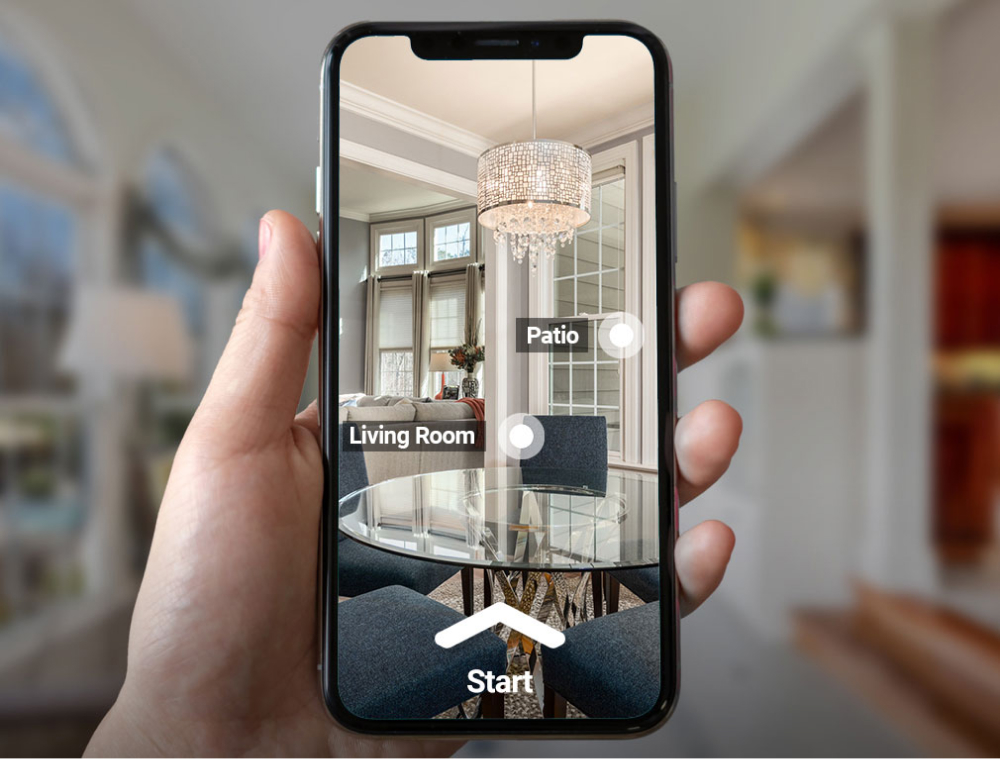Proven Secrets to Become a Front Runner in Real Estate Digital Marketing

Beyond any doubt, digital innovations have invaded almost every single sphere of modern life at a giant pace and the speed is just gaining momentum. Whereas the digital transformation within real estate landscape is not so rapid, compared to others, because the industry is mostly based on hospitality and construction, real estate software solutions and technology integration into practices are already making their way into the sphere.
According to the ‘Real Estate in a Digital Age 2019 Report’ by National Association of Realtors (NAR), in 1981, there was only 22 percent of home buyers finding a home by reading newspaper ads – in 2018, this number has been doubled by 44 percent and are likely to skyrocket in the following years. Plus, the NAR highlights that almost 92% of buyers utilize the internet to begin their house hunting quest, driving home the vital need for real estate agents to have an active online presence. Rather than solely relying on advertisements on newspapers as sources of information, now people gradually shift to websites by realtors, real estate agencies, and so on. Taking this chance, for real estate businesses to thrive in this dynamic digital age, owners are required to adjust and keep up with the evolution.
How Digital Marketing Shapes up the Real Estate Market in 2020
The huge impact of digital marketing on real estate is undeniable: Though the market has not been changed completely, this contemporary type of marketing has entirely disrupted the way realtors approached properties’ potential purchasers.
The occurrence of this major change happens on account of customers’ preference for the convenience of digital tools. In fact, people still make their final decision after observing on field; nevertheless, online information assists them in researching before viewing the properties. Moving from conventional methods to various digital tools, real estate customers now have a tendency to browse property on Google or they utilize an app that makes everything simple.
Given a plethora of notable digital trends, below are 7 major changes that data-driven marketing has made on the immovable property market:
#1. Boost Exposure
Before the presence of the Internet, the marketing activities by real estate agents only occurred in a specific geography, and one agent could only deal with the market in one certain area. In this day and age, the game has changed, by producing various advertising campaigns, spreading them over the internet, especially with the aid of social media and web traffic, real estate professionals have attracted wide pools of potential clients from diverse geographic locations.
Understandably, such a movement leads to an increase in competitiveness within the market. As a result, to stay on par with the changing scene, modern marketers are required to remain in line with the progressing technology patterns.
#2. Automation
To be more precise, it is digital marketing automation. When time is insufficient for you to be more engaging, craft more content, and deliver more customization on your own, marketing automation will be of service.
When it comes to marketing automation, there present more and more tools that allow you to streamline repetitive tasks such as social media posting, email and text marketing, home value reports, etc., or even online scheduling. Not only is it commodious but it also brings your targeted clients the satisfying experience of being more personalized.
In the end, digital marketing automation is at hand to solve much of the time-consuming tasks, as well as garner the consistent flow of leads.
#3. Chatbots
Apparently, chatbots are technology innovation that has been constantly noticed in recent years.
Leveraging the combination of voice, text, and messages to reply to customers, these chatbots come in with several different forms, automated reply on Facebook, automated email, or SMS bots. Their main role is to deal with customers who are regraded to be on top of the funnel – or to put it simply, people who are not certain if they would buy or sell the property will work directly with the bots. In practice, the information from those people will be immediately garnered and analyzed to produce relevant questions in conjunction with developing qualified answers. Additionally, in cases when it is needed, the bots are able to divert the conversation to a person in charge.
Undoubtedly, for a myriad of real estate agents, chatbots prove to be a powerful approach to generating traffic to collect and convert leads into customers.
#4. Augmented Reality (AR)
The concept of augmented reality, or AR, which overlays digital content and information onto the physical world, is no longer an uncommon thing, especially when it comes to our digital-driven world. Actually, in the last few years, technology companies have made AR accessible and easier to offer.
So, the question is: which role does AR play in real estate digital marketing? Generally, in real estate, AR empowers businesses to tackle the problem of observing the property in person. For instance, by adopting AR, your agent can offer clients virtual tours of properties as well as the neighborhood, as you can present them the expected construction of a finished project together with a feel of the surrounding area.
Moreover, there are already many commercial real estate software products, which help scan buildings and watch the available spaces inside, getting all kinds of information on the property. Some of these applications are already able to go as far as to connect the clients with the agents directly. Whilst the apps of AR have not come into wide usage yet, several experts believe Augmented Reality will influence the future of the real estate industry and 2020 is a perfect start for this!
#5. Blockchain Technology
To discuss modern digital trends without mentioning Blockchain is nonsense and real estate is not an exclusion. Also, as reported by Digital Agency Network, the world’s apprehension on financing and monetary systems have presently been revised by the blockchain technology. In 2020, it’s expected that more properties sold via blockchain technology – the transactions made do not then require any middlemen or bank verification.
In addition to financial transactions, its advantages are being applied in digital marketing as well. By allowing marketers to track the placement of their ads and ensuring their targeted customers to click them, this technology turns customer engagement data to a more accurate and relabel source.
As a result, your marketing assets will not be wasted.
#7. Social Ad Campaigns
There goes without saying that social media is an extremely effective and reliable marketing channel. Joining this huge network, you will receive various fresh offers which make it possible to target markets specially and more effectively, comparing to the past. Those mentioned fresh offers are geofencing and improved retargeting.
To be the first runner in this harsh competition, it’s a “must” that realtors map out advanced social projects that utilize the complete variety of tools and styles. In fact, businesses that invest in establishing solid social methods are most likely to land on an outstanding ROI in their investment.
#8. Influencer marketing
As a matter of fact, individuals are prone to authentic and real experiences, which explain why they are likely to believe in a person rather than advertisements. This is also when influencer marketing comes into play. Though it is pricey, the rewards it yields are worthy in the end.
Speaking of employing Influencer Marketing for your business, so as to make the best out of it, you should select the most suitable presenters, those who can reach out to your right consumers. Furthermore, the effective hashtag that your clients can remember easily can be used to support the campaign.

Simple yet Actionable Real Estate Digital Marketing Practices and Tactics for 2020
#1. Harness the Power of Social Media
As already discussed, establishing a robust social presence is imperative for success, especially on Facebook, Instagram, and Pinterest. Nevertheless, let’s never get confused as to content posting and social media marketing. It’s one thing to post real estate-related content on your Facebook account every once in a while, a full-fledged social media marketing strategy is another thing – what truly deliver the results you’re desiring. To attract and attain your audience, a real value-driven strategy can ben proposed, some ideas of useful content to post on your social media channels to deliver such value include:
- New or existing listings
- Team bios (if you run a real estate brokerage)
- Case studies
- Relevant blog posts
- Success stories
Whether you are a newbie or a seasoned digital marketing professional, one critical rule of thumb for developing a social media strategy for your real estate business is to share varied content. And given that sharing listings is a significant factor in your digital strategy, you will wish to make sure that your content is useful for a broad audience, not just leads in the market for a new home.
#2. Craft an Appealing Email Campaign
No matter which industry you’re in or the business model you put on, an email nurture campaign is always an invaluable tool in connecting with new leads and staying relevant to past clients. Ideally, a well-rounded campaign will funnel potential clients through predetermined actions based on their buyer profile and previous engagements with you.
Actually, nurture email campaigns are like the breadcrumb paths of Hansel and Gretel, except instead of a gingerbread house at you’re your clients find their dream home. Let’s leave your clients a trail of high-end panko breadcrumbs by tailoring your interactions with them based on previous actions they’ve taken. Should they first attend an open house with you, send them an email detailing other nearby houses on the market. Or, should they attend your first-time homebuyer’s seminar, just send them your blog post links or e-books in which you believe your audience will take an interest. After all, delivering value-confused and relevant content will help your clients take the appropriate next step, depending on where they are in their journey.
Additionally, according to Smart Insights, the average open rate of emails for real estate businesses is around 27% with a click-through rate (CTR) of 3%. Nonetheless, the more relevant your content is to a client, the more likely they will be willing or even enthusiastic in opening the email to see what you have to say.
#3. Host Virtual Tours
Speaking of real estate mindset, you should always bear in mind that your clients’ time is precious, and they wish to understand as much as possible about a property prior to visiting in person. Virtual tours are a great way to give a comprehensive, accurate preview of the property while also saving tons of time for potential buyers.

The reality also proves that virtual tours of a home are incredible pieces of content in a winning digital marketing strategy. Not only do these tours share video content – which generates revenue whoppingly 49% faster for marketers than non-video users – but a prospective client can also grasp an idea of what this property really has to offer them.
Since the process of purchasing a home can be tough and complicated, and as a top real estate expert, your job is to make such a buying journey as easy as possible for your clients. There exist some handy yet powerful tips proposed by top experts in the industry, which includes:
- Making the virtual tour three-dimensional and user-friendly
- using real footage of the home – rather than using stock images or digital illustrations.
- Ensuring the video of your virtual tour is interactive and responsive across various screens (mobile and desktop)
#4.Map Out a Solid SEO Strategy
Within such an Internet-ubiquitous world, when buyers and sellers begin to search for a real estate agent, they will likely turn to Google. Showing up on page one for the top niche keywords that buyers and sellers are looking for is key.
To dominate the first page of Google, SEO, or search engine optimization, is a critical technique. When implemented properly, your website, as well as major web pages, will show up higher on search engine results pages (SERPs) during relevant searches. Nevertheless, it should be noted that Google and other search engines are constantly changing their algorithms; hence, it’s more than crucial to direct your efforts to SEO marketing more than one time.
As regards the specific “ingredients” of a winning SEO strategy, keywords are a basic aspect that can make a significant difference. When deciding on keywords to include in your SEO strategy, make sure that you include high-ranking ones such as your location and your industry throughout your blog content and website. In addition to this, there exist other elements that are worth your attention:
- Backlinks
- Meta titles and descriptions
- Social media pages
- Online directories
“Content Is King!” There goes without saying that content is an indispensable asset to your digital presence – a fantastic way to level-up your SEO, create a positive online reputation, and establish your business credibility as a thought leader within the real estate sphere. After all, whether it’s shared on your website or social media channels, a real estate professional’s digital marketing strategy is nothing without valuable content.
Understanding that, be 200% sure that you do invest in creating value-focused blog posts and update them regularly. The average word count of content that ranks at the top of Google’s search engine results is between 1,140-1285 words, so you’d better off crafting high-value, long-form content on a frequent basis.
#5. Leverage Customer Relationship Management (CRM) Software (Especially Those Specifically Designed for Realtors)
Customer relationship management (CRM) software is a foolproof and organized way for real estate agents to keep notes on leads, current clients along with a lengthy list of properties to handle. Actually, whether you are a newbie within the real estate landscape looking for a powerful platform to manage your contacts or a seasoned professional who wish to gain a holistic view of your clients’ touchpoints, the truth of the matter is: you definitely need a CRM software.
In addition to various management features such as contact management, lead management, or lead scoring, CRMs do wonder for real estate digital marketing. For instance, it can be adopted to deliver automated email campaigns designed for special occasions such as holidays, birthdays, or anniversaries to keep leads and clients constantly engaged. Plus, it can be helpful when it comes to sorting clients by neighborhoods they’re interested in, the number of bedrooms wanted, etc.; thereby, you can quickly alert your pipeline of clients about new properties.
#6. Establish a Market Niche
Understandably, buyers and sellers have a tendency to look for local experts in their price range, target neighborhoods, and property type. Focusing on a specific neighborhood, property type and price range then will allow for a more targeted campaign that will reach the right audience.
To put it under another perspective, if you have suffered some real estate marketing competition in your area, you also wish to consider making yourself stand out by going niche – to become the go-to real estate agent for dog owners, families with kids, divorced individuals, to name a few. Picking or even coining a name for yourself in regards to a specific niche need can make you noticeable and memorable, especially in saturated zip codes.
#7. Create Video Content
Making short videos about specific properties proves to be a great approach to directly target clients while also taking very little effort. Live videos on social media sites, for example, are a stunning idea to showcase a property using just your cell phone. FAQs (Frequently Asked Questions) and tip videos are also workable options to promote the audience’s engagement. Since buying and/or selling a home can be stressful, providing accurate and timely answers to frequently asked questions or quick tips can help to build trust, establish credibility as well as partly maintain a steady stream of video content.

Recently, animated videos get trendy for your real estate businesses. The short, cute, high-quality cartoon videos can develop your brand awareness and also give it a touch of personality. Additionally, you may consider featuring local landmarks or sites in your animated video to make it ultra-unique and targeted!
The Bottom Lines
Over the past ten years, the real estate landscape has been under the profound digital transformation. Houses are being bought in a different way, with online market research coming first and clients having a clear vision of precisely what they want out of their future home. Since the days of expensive direct mail, radio and TV campaigns are coming to an end, and more people go online, smartly investing in digital marketing will definitely grant you a major advantage over your competitors who are still using old-school tactics.
You’re a complete newbie to the digital world and find those marketing tasks too overwhelming to handle on your own? Don’t panic! We’re more than willing to lend you a helping hand! Should you need any help with a dedicated team to get your business image exposed to the digital world, don’t hesitate to get an online presence manager.
You might also like:








